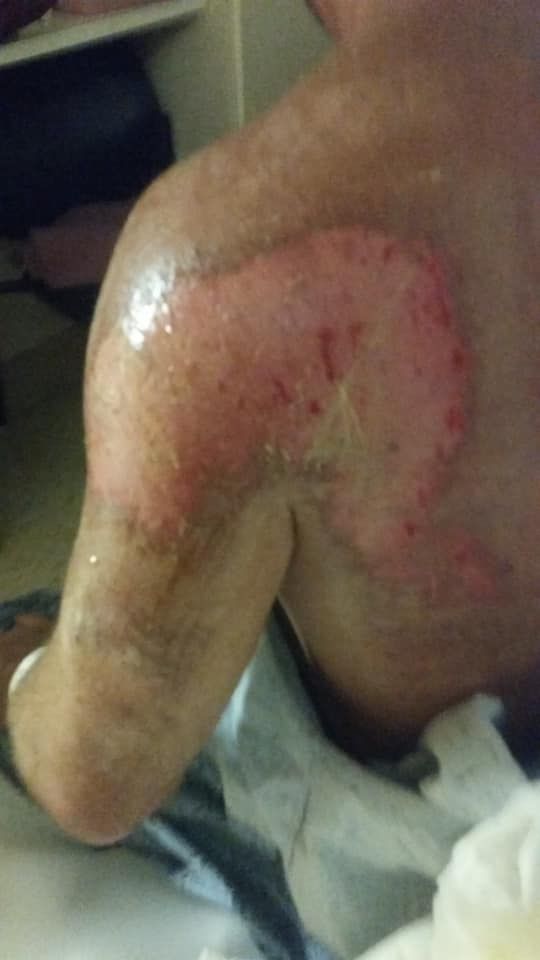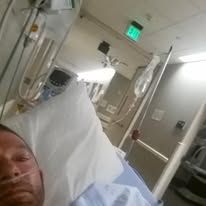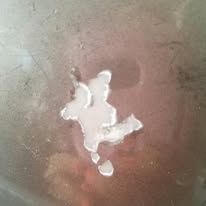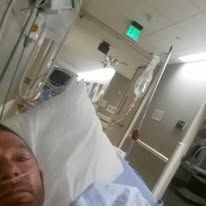Ketamine is a psychedelic???
-
Ketamine is a weird drug, and my experiences with it date back to (gasp) 1974.
First of all, in larger doses, about 2 mg/kg IV it's a good induction agent for general anesthesia. It doesn't cause significant hypotension (like Pentothal used to). As a 1-time dose, any effects from it are pretty much gone in half an hour. It's a good drug to induce anesthesia in trauma/bleeding cases because it won't bottom out the BP. It's said (probably apocryphal) that thiopental killed more GIs at Pearl Harbor than the Japanese.
We had a dentist who did a lot of work with children with all kinds of developmental disabilities. The severe autistic kids were difficult. You couldn't get near them to start an IV, and just separating them from mom/caretaker was often a challenge. We'd use an intramuscular ketamine "dart." About 5 mg/kg was enough. You'd sneak up on the kid, and hit them with the injection before they knew what happened. In 3-5 minutes, they'd go limp, and fall asleep. Put 'em on a cart and off to the OR.
In smaller doses (0.25 - 0.5 mg/kg) it is an excellent analgesic. I would use it frequently during c-sections when the epidural was just not "good enough." Supplemented with about 100 ug of fentanyl it was great for "getting over the hump." When I was teaching residents, I'd tell them to give fentanyl until the patient developed some miosis (small pupils), and enough ketamine to the point where the eyes would twitch with some nystagmus.
One of my partners would routinely mix ketamine with propofol for infusion in "sedation" cases - such as endoscopies, etc. Worked great. Seems like you needed less propofol that way. Propofol has no intrinsic analgesic properties so it made sense to use some ketamine in the mix.
In the lower dose range, some patients develop hallucinations or any overall "weird" feeling. Some would describe an "out of body experience." I always considered it as a hallucinogenic in the moderate doses.
THere's lots of stuff coming out regarding ketamine as a treatment for depression. Granted, I've not followed that aspect of it much, but there's a lot being done.
It's a weird, weird drug with many properties, based on dose, route of administration, etc. PCP (phencyclidine) is a close chemical relative, though it seems that PCP has mostly hallucinogenic properties. Weird drug.
In my practice, I didn't use it all that often, only in the cases described above.
-
PCP is just dissociative in my experience. Unpleasant. What I’ve heard about ketamine seemed very similar. I drove a few boxes of the pharm liquid from LA to Ohio years ago but was not interested in trying it.
@Mik said in Ketamine is a psychedelic???:
PCP is just dissociative in my experience.
Yes. Ketamine is often referred to as a "dissociative anesthetic." Patients describe it as being disconnected from reality. But, there are "ketamine hallucinations". Rarely, they can persist into the post-op period.
Unpleasant.
In larger doses, I imagine it is. One patient described it as feeling as though they were "encased in styrofoam." However, my use was usually smaller doses (OB, etc). Good analgesic, but too much baggage with other stuff why I used it infrequently.
https://pmc.ncbi.nlm.nih.gov/articles/PMC7572586/
A good (though older) overview:
-
As I said, it's a weird drug. It does so much, and so differently in different people. Effects and efficacy seem to be very dose-dependent. It's only in the last 15-20 years that we're seeing the multiple effects that ketamine has.
If it finds mainstream acceptance in other fields, I wouldn't be surprised to see more specific related drugs being developed.
-
I would never consider ketamine as a recreational drug.
Wanna trip? Take something trippy.
Wanna relax? Smoke something.
Wanna have some euphoria? There are options.Ketamine is too weird. Also, in today's world, you don't know what you're getting, or how much.
-
I would never consider ketamine as a recreational drug.
Wanna trip? Take something trippy.
Wanna relax? Smoke something.
Wanna have some euphoria? There are options.Ketamine is too weird. Also, in today's world, you don't know what you're getting, or how much.
@George-K Just want to say "thanks" for the background. Interesting stuff and good to hear from someone who knows!

-
FDA approves nasal spray ketamine.
Each spray delivers about 28 mg. I would use 25-50 mg as a nice analgesic dose with the side effect of a little dissociation - "Wow, man!"
I wonder what the blood levels of the intranasal spray are, and more importantly, how much gets into the brain.
The cribiform plate is a bone with lots of blood vessels sitting at the roof of your nose. It's about 1/8" thick, so I imagine a goodly amount gets into the brain via that pathway. I don't know a lot about nasal absorption of drugs into the brain, but that's my guess.
Chat GPT says the bioavailability is about 50% - so each dose delivers about 14 mg.
Also, from Wiki:
Esketamine, sold under the brand names Spravato (for depression) and Ketanest (for anesthesia) among others, is the S(+) enantiomer of ketamine.[5][13] It is a dissociative hallucinogen drug used as a general anesthetic and as an antidepressant for treatment of depression. Esketamine is the active enantiomer of ketamine in terms of NMDA receptor antagonism and is more potent than racemic ketamine
The racemic mixture is what I would inject.
-
Oh it's dissassociative all right. Did I ever share here my accident of 2016 July 3rd? I was tboned in a open intersection of a residential area by an SUV doing 60. Remember that red Aprilia scooter I showed off years ago? Rode it to Phoneix and back one year and mete Steve and Trish during my baseball tournament. That guy was smashed to smithereens with me almost as well. Hit and run too. never found em. White toyota suv only known because he ran off before picking up all the different Toyota parts that had broken off. Ketamine, yeah, a night to remember even though the memory isn't very detailed. , but remembered enough. 6 busted ribs, left collapsed lung, snapped collarbone , nasty gas in a calf, road rash city all over my body as i was not geared up except for my helmet, which save my life. It sits in the garage as a shrine. I have a big chunk knocked out of it from my head hitting the pavement after going flying for 20 feet. The ketamine was the most intense drug I ever had. It was used in my case so that they could scrub all my road rash with out me screaming. I felt nothing. I remember talking to one of the scrubbers. And I remember thinking that i was dying and that all these people scurrying around above me all in white were those people whose task it is to prepare all humans for the next plane. I shit you not. This was real,I thought I was in that Steven King book where there is another dimension on earth populated by these human like creatures whose job it is to cut off the balloon that floats above everyone's head, when it is time for that person to die. I forget the name of it. You don;'t know you have this ballon above you in the regular world but everyone hasl it in the other dimension. and they change colors according to one's current health. The black ones get swiped by the balloon people and you die.
-
Oh it's dissassociative all right. Did I ever share here my accident of 2016 July 3rd? I was tboned in a open intersection of a residential area by an SUV doing 60. Remember that red Aprilia scooter I showed off years ago? Rode it to Phoneix and back one year and mete Steve and Trish during my baseball tournament. That guy was smashed to smithereens with me almost as well. Hit and run too. never found em. White toyota suv only known because he ran off before picking up all the different Toyota parts that had broken off. Ketamine, yeah, a night to remember even though the memory isn't very detailed. , but remembered enough. 6 busted ribs, left collapsed lung, snapped collarbone , nasty gas in a calf, road rash city all over my body as i was not geared up except for my helmet, which save my life. It sits in the garage as a shrine. I have a big chunk knocked out of it from my head hitting the pavement after going flying for 20 feet. The ketamine was the most intense drug I ever had. It was used in my case so that they could scrub all my road rash with out me screaming. I felt nothing. I remember talking to one of the scrubbers. And I remember thinking that i was dying and that all these people scurrying around above me all in white were those people whose task it is to prepare all humans for the next plane. I shit you not. This was real,I thought I was in that Steven King book where there is another dimension on earth populated by these human like creatures whose job it is to cut off the balloon that floats above everyone's head, when it is time for that person to die. I forget the name of it. You don;'t know you have this ballon above you in the regular world but everyone hasl it in the other dimension. and they change colors according to one's current health. The black ones get swiped by the balloon people and you die.
@NobodySock Wow!!!
-
@NobodySock Wow!!!
@taiwan_girl said in Ketamine is a psychedelic???:
@NobodySock Wow!!!
I know! Steven King writes some wild stuff! Balloon people! Who wudda thought? Maybe he gets his creative ideas from a drug such as Ketamine. Who knows. He's always been on my mt rushmore of writers.
-
a







-
Anyways, I am talking to the 21 year old female Steinway dealer on the phone and she is all excited that I really enjoyed playing the B. She was not in at the time but others were. She is also aware of my plans to Italy as well as my having to make a road trip down south to play some other brands first. But she really wants to sell me a B now! I asked her how much right off the bat and then chuckled. I knew I wasn't going to get an answer to that question on a phone call. But, she wanted to first inform me that it is now 2025, and the prices have gone up on all pianos. But, since I loved the B so, she says she can not only honor 2024 prices but even better and honor the sales price they had going on at one time for one of their sales. She didn't offer a number but was certain that I would be pleasantly surprised when I heard her offer. Hmmmmmmm. Anyways, she wants me to come in Saturday and talk and guess what? The B is sold and gone already but a new B is already on its way. Hmmmmmmm. Whaddaya think LD? You stated here I wouln't be able to touch a new be for less than 100K I do believe. Well what ever the price she has ready to offer me is, It is all good fun and I find myself daydreaming about new toys.
-
 on the pics!!!
on the pics!!! -
Wow. I’m glad you survived that @NobodySock .